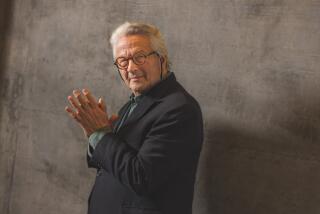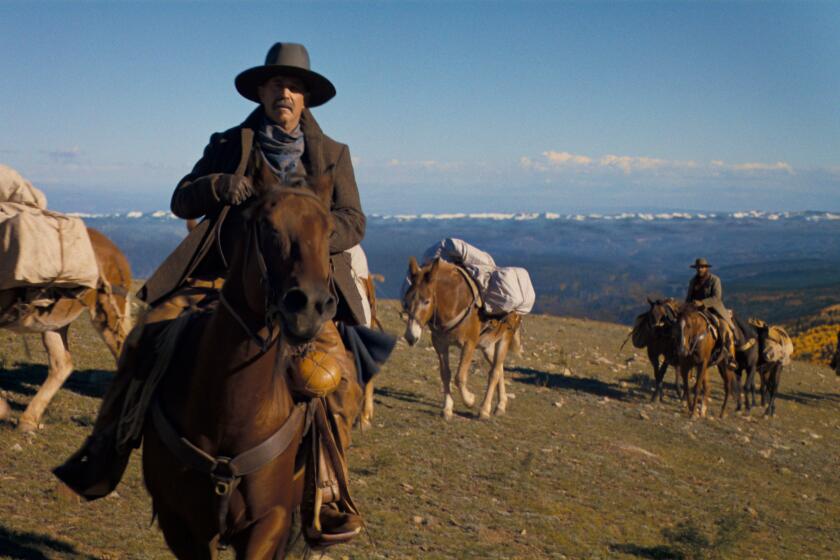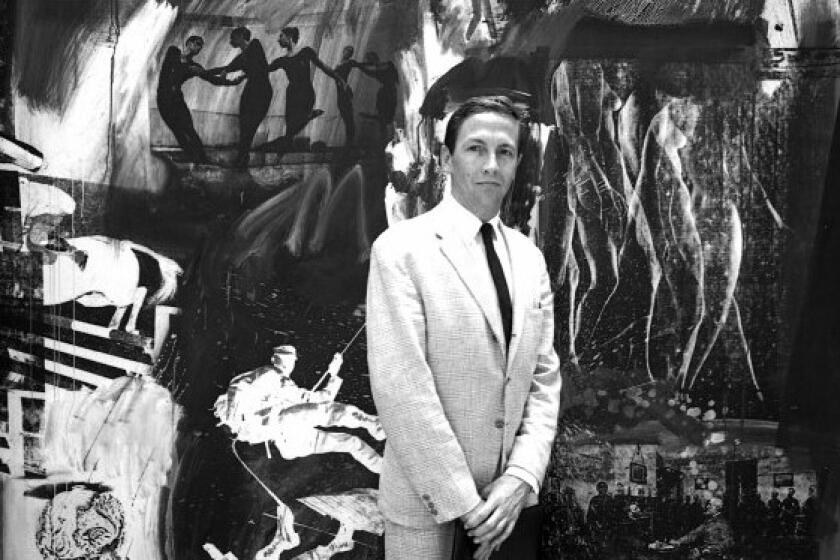. . . Chinese Filmmakers of the Past Deserve a Better Standard-Bearer Than That
Ang Lee’s martial arts epic “Crouching Tiger, Hidden Dragon” has earned 10 Academy Award nominations and is likely to become the first Chinese-language film to win an Oscar. Over the last decade, the Academy of Motion Picture Arts and Sciences has been thoughtful in its nominations of Chinese-language films: It has supported freedom of expression for a new generation of directors in mainland China and has celebrated the cultural vibrancy of Taiwan--including Lee’s earlier offerings.
But to bestow the first Oscar on Lee’s latest movie would squander the academy’s careful choices in the past.
In the late 1980s, during two years as a college student in Beijing, I immersed myself in Chinese cinema, such as it was. I hung out with directors and students at Beijing Film Academy and even dated an actress.
On the screen, our indulgences were limited to ponderous melodramas of platonic love sustained across epic divides of history and geography or propaganda plays of heroic sacrifice for the social good. The acting was either wooden or laden with histrionics. When I’d had enough, I would make the 36-hour train trip to Hong Kong for a week of freewheeling martial arts cinema: fast-paced hilarity, cunning plots, gaudy visuals and ludicrous magic.
*
In 1988, things changed. A film by a graduate of Beijing Film Academy won the Golden Bear at the Berlin Film Festival. In Beijing, my university erected a huge outdoor screen on the athletic grounds, and the entire school gathered wide-eyed to soak up the sex and luscious color of Zhang Yimou’s “Red Sorghum.” The movie was melodramatic and gushed socialist sentiment, but it felt real and alive.
Zhang’s next two films were both nominated for Oscars: “Ju Dou” in 1991 and “Raise the Red Lantern” in 1992. In 1994, Zhang’s mentor, Chen Kaige, garnered two Oscar nominations with his epic “Farewell, My Concubine.” These films weren’t masterpieces, but the fact that the Communist government in China periodically banned them confirmed that the Academy Awards were supporting worthwhile developments in Chinese cinema.
“Concubine” shared its Oscar nomination with Lee’s whimsical Taiwanese American film “The Wedding Banquet”; a year later, Lee’s Taiwanese “Eat Drink Man Woman” was nominated too. Then Lee shifted cultural milieus, to Victorian England (“Sense and Sensibility”), suburban Connecticut (“The Ice Storm”) and the Civil War South (“Ride With the Devil”).
“Sense and Sensibility” deserved its seven Oscar nominations, but to some critics, the subsequent films were distant and bland. To me, the last two revealed that Lee was sacrificing his gift for culturally specific insight in a quest to prove he could master subjects and genres that were increasingly abstract.
“Crouching Tiger, Hidden Dragon” makes me think that Lee’s quest is a dead end. In his attempt to draw on Chinese cinematic tradition to produce the perfect martial arts movie, Lee seems to have inadvertently combined the worst aspects of mainland Chinese and Hong Kong film.
“Crouching Tiger” reminded me of my Beijing days. It had the ponderous melodrama of lovers divided by a vast geography, along with the sacrifice of individuals for the social good--without even half the sexiness of “Red Sorghum.” Wooden acting by Chow Yun-Fat and Michelle Yeoh was matched by histrionics from the girl, Zhang Ziyi.
Against this glacial pace and deadly seriousness, the Hong Kong-style martial arts fell flat. In one fight sequence, Yeoh’s plodding through a series of weapons paled in comparison with the lightning-quick imagination that, say, Jackie Chan lavishes on his props. Without the humor and magic that might pervade a Hong Kong period piece, the flying was absurd.
Mainland Chinese audiences knew this and were underwhelmed. In Shanghai, they booed the finale, in which actors swinging atop bamboo trees were clearly moved more by crane operators than by their own skill. The Communist authorities may well have considered banning “Crouching Tiger”--the leader of the dissident sect Falun Gong claims he can fly--but they didn’t have to. The film was a flop.
Michael Barker, co-president of Sony Pictures Classics, which released the movie in North America, says Lee’s masterwork “is going to open doors for American audiences to be more accepting of Asian films.” But “Crouching Tiger” isn’t an Asian film; it’s a Taiwan-raised, American-influenced international director’s fantasy of a genre.
It’s ironic that Western critics who disliked Zhang’s films for their stereotypically socialist undercurrents don’t mind the stereotypical Chineseness of “Crouching Tiger.” The first Oscar to go to a Chinese-language film should be reserved for a fresh and challenging Taiwanese or mainland Chinese movie that is a prototype, not a stereotype.
More to Read
Only good movies
Get the Indie Focus newsletter, Mark Olsen's weekly guide to the world of cinema.
You may occasionally receive promotional content from the Los Angeles Times.






